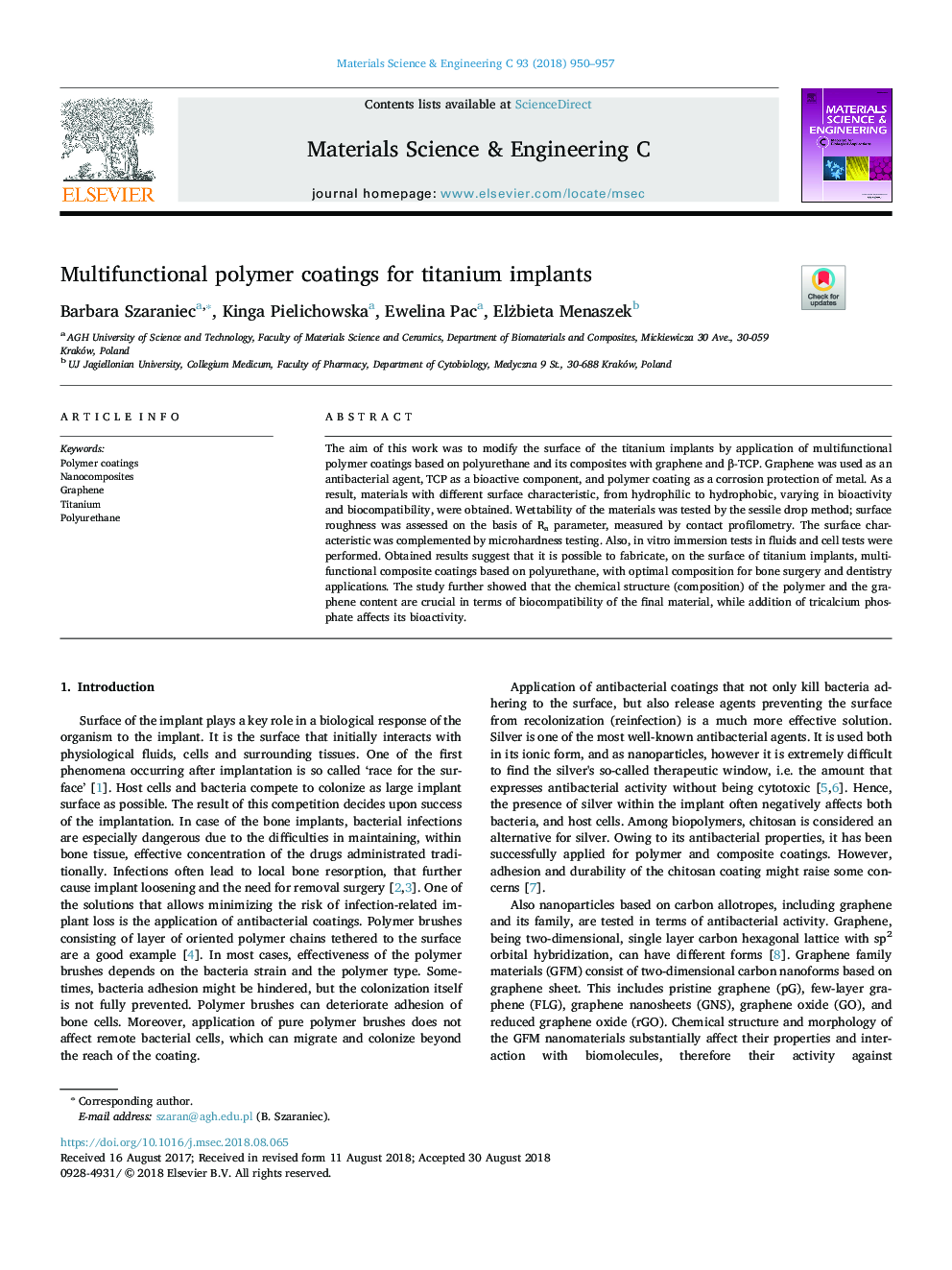| Article ID | Journal | Published Year | Pages | File Type |
|---|---|---|---|---|
| 11006733 | Materials Science and Engineering: C | 2018 | 8 Pages |
Abstract
The aim of this work was to modify the surface of the titanium implants by application of multifunctional polymer coatings based on polyurethane and its composites with graphene and β-TCP. Graphene was used as an antibacterial agent, TCP as a bioactive component, and polymer coating as a corrosion protection of metal. As a result, materials with different surface characteristic, from hydrophilic to hydrophobic, varying in bioactivity and biocompatibility, were obtained. Wettability of the materials was tested by the sessile drop method; surface roughness was assessed on the basis of Ra parameter, measured by contact profilometry. The surface characteristic was complemented by microhardness testing. Also, in vitro immersion tests in fluids and cell tests were performed. Obtained results suggest that it is possible to fabricate, on the surface of titanium implants, multifunctional composite coatings based on polyurethane, with optimal composition for bone surgery and dentistry applications. The study further showed that the chemical structure (composition) of the polymer and the graphene content are crucial in terms of biocompatibility of the final material, while addition of tricalcium phosphate affects its bioactivity.
Related Topics
Physical Sciences and Engineering
Materials Science
Biomaterials
Authors
Barbara Szaraniec, Kinga Pielichowska, Ewelina Pac, Elżbieta Menaszek,
